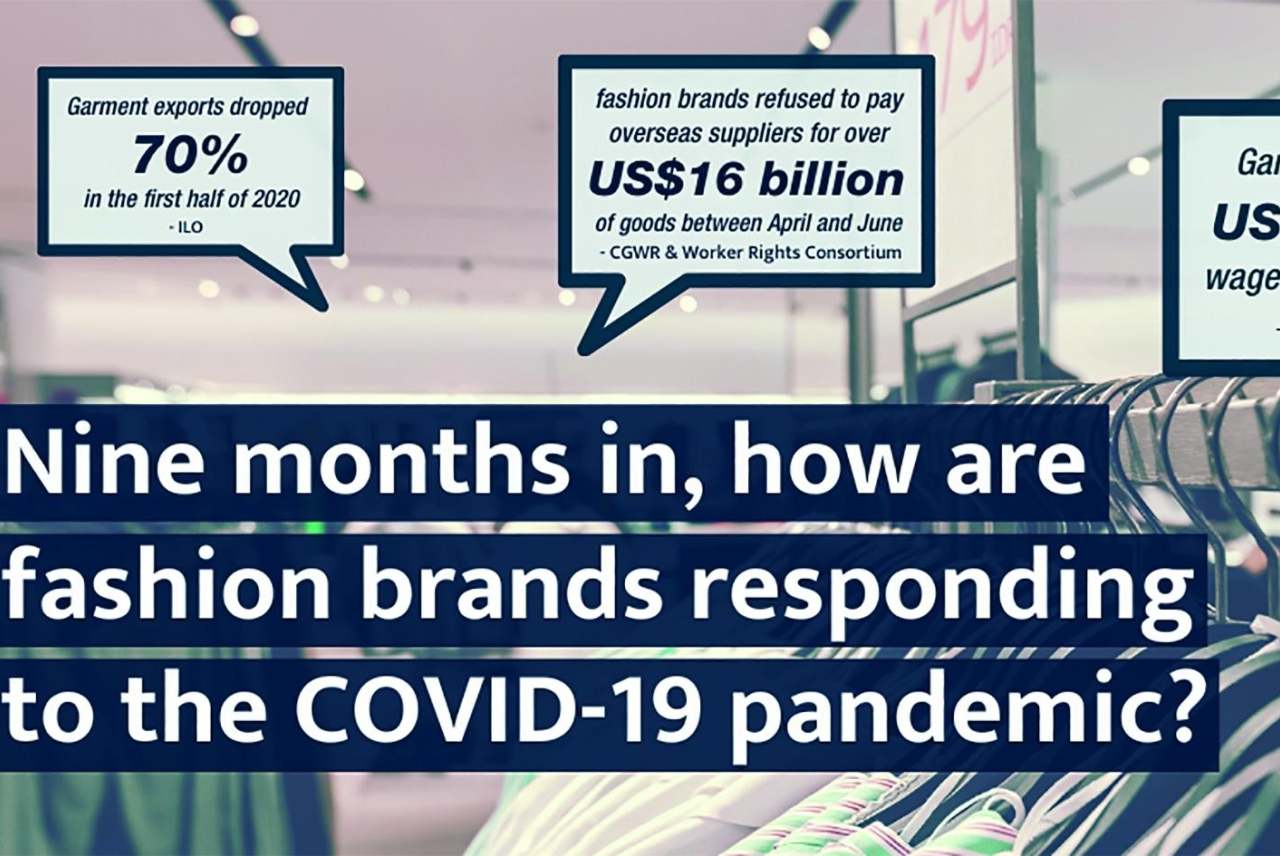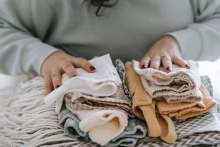Fashion brands still not paying suppliers
The Business and Human Rights Resource Centre has surveyed 50 fashion brands on whether they have taken action to protect workers in their supply chains during the pandemic.
Many clothing brands have responded to the pandemic by refusing or delaying payments to suppliers, putting garment workers across the world at serious risk. There have been ongoing campaigns calling on them to ‘pay-up’.
Thulsi Narayanasamy, Senior Labour Rights Lead, Business & Human Rights Resource Centre, said:
“We are long past the time when a ‘we’ve-not-had-time-to-prepare’ defence will wash [...] Our findings show the fashion industry thinks it can continue with a ‘business-as-usual' approach, sticking to the same policies and practices they used before the pandemic.
But what garment workers are facing is nothing short of complete upheaval and crisis. For workers, already paid so little, to lose their jobs or not receive a full wage is the difference between feeding your family or not.”
Garment workers lost US$5.8 billion in wages from March to May, the Clean Clothes Campaign said.
What the tracker shows
The tracker shows that nine out of twenty-nine companies that recorded a profit have yet to commit to paying for their orders. British brands Topshop, Boohoo and Debenhams failed to respond.
Supermarkets Aldi and Lidl have both implemented new policies to not ask factories for price reductions/discounts on comparable items from last season. This shows that it is possible for large brands to instigate such policies. And yet Business and Human Rights Resource Centre reports that 65% of factory suppliers have reported receiving demands for price cuts from brands.
For more information see the COVID-19 Apparel Action Tracker.






